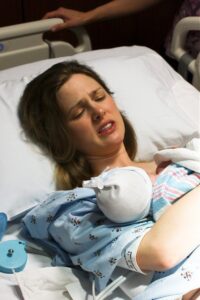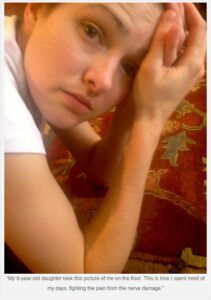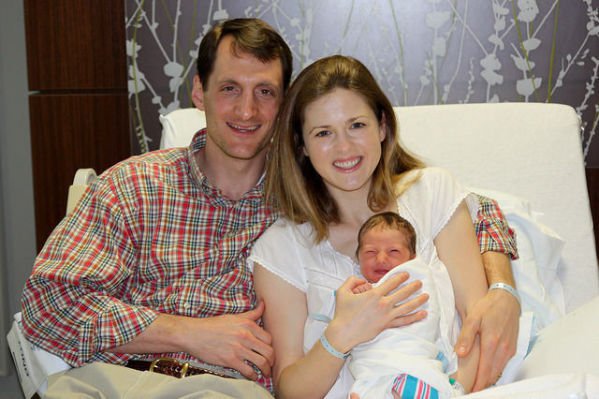Natural Childbirth

In 2012, Caroline Malatesta and her husband, JT, were expecting their fourth child, their first boy. Caroline had first planned to have the baby at St. Vincent’s hospital. That’s when she saw the Brookwood ads. They promoted natural childbirth, and showed Caroline everything she wanted to see: all the equipment that is used in the natural birth community.
Brookwood

“Brookwood’s advertising is what first piqued my interest in natural birth,” said Malatesta. She also said that: “What was promised online and then confirmed through my doctor was the most influential.” So she decided to have her son at Brookwood Baptist Medical Center in Birmingham, Alabama.
Early

The problem arose because the baby came a little early, and Caroline’s doctor was not on call. So, absurd as it may seem, the nurses tried to stop her from pushing. Then they made her lie down, which was not the position she had chose to give birth in, and somehow, one of the nurses pushed the baby back into her vagina. That lasted for 6 minutes.
Pudendal Neuralgia

One minute after the doctor arrived, the baby was born. Fortunately, he was alright. But Caroliine was not. She suffers from pudendal neuralgia, which is nerve damage in the genital region. She refers that the pain is worse than labor. And that the condition has killed her sex life.
In Pain

She explains why she decided to sue. “I had tried everything within my power to understand what happened from Brookwood’s perspective and get answers. Unfortunately I felt like I didn’t get any real answers. And they eventually just shut me out. That was when I realized the only option was litigation.”
Misrepresentation

In August 2016, Caroline was awarded $16 million and the affirmation that her birth experience was not only unacceptable, but a direct result of misrepresentation by Brookwood.
“It’s meaningful to me that so many women have contacted me and told me that the verdict was their validation that they never got. That gives meaning to an injury that’s hard to come to terms with – a bigger meaning than myself.”
“When I finally started talking about how I was concerned about how my birth went, other women started talking to me,” she said. “Then last year, when the media began covering my story, it’s like the floodgates opened. Women from all over started contacting me about similar things that happened to them.”
“That was a real driver for me to keep pursuing this. I realized I couldn’t just let that go.”
Hope

“I’m doing better today, but life is very different. I sleep a lot more. I have to rest in bed a lot more. I go back and forth between using ice packs and being in hot baths for portions of the day to help with pain. I am just in chronic, real, nerve pain in the most sensitive area of the body. Some days I’m in a lot of pain, some days are better. You just take one day at a time. I’m still on a lot of medication, I still only do a fraction of what I used to do, I still can’t have sex. I have to reserve my energy for the important things. The nerve has to stay quiet. It would have to be a major medical advancement or a miracle for it to get better. I refuse to say never. I have to hold out some hope.”
